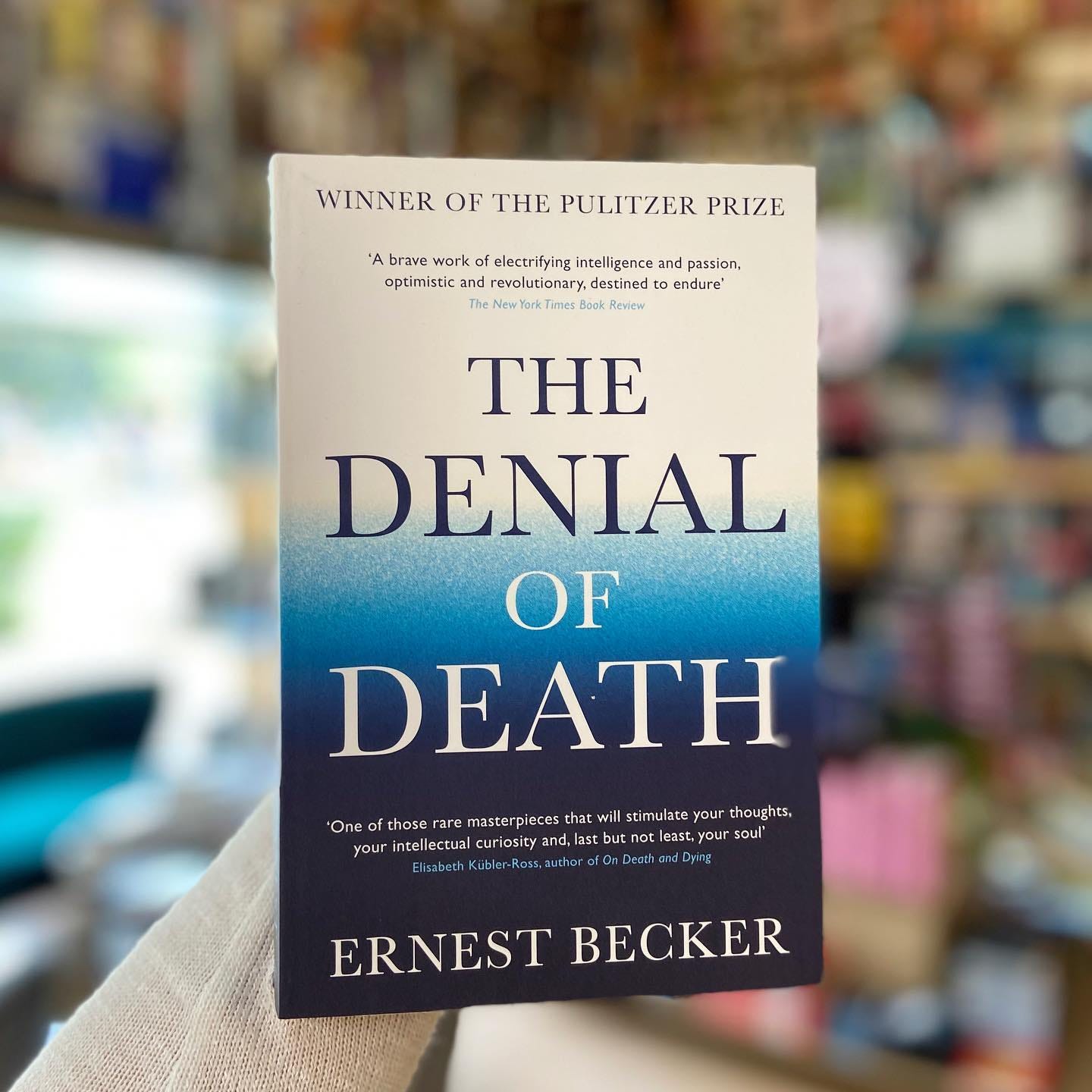“Mother Nature is a brutal bitch, red in tooth and claw, who destroys what she creates. We live … in a creation in which the routine activity for organisms is ‘tearing others apart with teeth of all types---biting, grinding flesh, plant stalks, bones between molars, pushing the pulp greedily down the gullet with delight, incorporating its essence into one’s own organization, and then excreting with foul stench and gasses the residue.’” – From Sam Keen’s introduction to Ernest Becker’s “The Denial of Death” (1973)
I swear I’m not a pessimist. But the older I get, the more my pessimistic views appear to be mere realism.
Caveat: Somehow, I still get happier and more content each year as I become more accepting of reality.
When I was seventeen, I adopted a fatalistic philosophy colored by lyrics like "Change your mind. You're always wrong" from The Cure.
I developed a sense that we don’t learn much in life that we don't already know from a young age. The facts of life are apparent early. But it's challenging to accept them until we’re older.
The harshest statements are often the most useful. Like the darkly humorous “Life’s a bitch, then you die.”
In the 80s, I asked an older friend if his relationship with his father improved as he got older. I had hoped my own relationship with my father would become more egalitarian, that we would one day see eye to eye and have normal conversations without judging each other.
"It never happens," he said.
Off-the-cuff remarks like this can improve lives when taken to heart.
Ultimately, acceptance impacts us more than our efforts to change others or ourselves.
When I decided to move to Finland, another off-the-cuff remark helped it happen,
"You may never get another chance," a friend said, noting I was already in my late forties. Optimism might have killed my chance of affecting real change. How many never-to-be-fulfilled dreams are created by the wrong belief that there will be another chance?
In the years before I moved to Finland, I began revisiting some of the places of my childhood, Kelly Lake, Wisconsin, for example. I felt I was doing something special and unique because it was a special place for me.
"Everybody does that," a friend said, immediately disassembling any sense of uniqueness I still felt I had.
Let's back up to “It never happens" regarding the wish for improved relationships. People waste their lives believing others will change or wishing they could become someone they aren’t.
When I arrived at college in 1982, the upperclassmen said, "Whatever you were when you came here, you'll just be more of it when you leave."
It’s true. In some ways, it’s even impossible for psychotherapy to ever change us.
Ultimately, acceptance impacts us more than our efforts to change others or ourselves.
Ernest Becker's The Denial of Death is a bundle of truths from philosophers like Soren Kierkegaard, Otto Rank, and Paul Tillich. In the introduction to the book by Sam Keen, I found a terse formulation of one of them: "Mother Nature is a brutal bitch."
Becker would argue that the entirety of our character is a defense against the terror of death that awaits us all.
Well-adjusted, emotionally healthy people have developed their characters to integrate the fact of inevitable death, the root cause of anxiety in humans, that constantly ticking clock telling you you’re running out of time. Because you are.
My poetry and writing are a constant survey of reality, my attempt to hold the truth, including death, as close as possible yet keeping it at just the right distance to get through each day.
Tillich might call that courage.
Poets deal in death. It's one of the building blocks of our work. It's part of our job to remind others that most of what we humans do is transitory bullshit, and even the wealthiest king on the highest throne still sits there on his ass, out of which issue disgusting, vile substances and smells, just like the animals we sometimes think we are different from.
All this is to say my parents visited me last week, and despite decades of wishing things would be different, they weren’t really. I haven’t changed that much since I was a teenager, despite being sixty, having a family, and a young son. After all these years of hoping for change, the best course of action is to come to terms with the permanence of this condition, as my old boss, who shared the wise words "it never happens," must have, in the decades before his father died. It’s taken me 35 years, but I finally realize it’s true.
It's okay to stop wishing for the outpouring of love and acceptance I seldom felt as a child. If it hasn't come yet, it's not going to.
I’m a grown-up now. I don't need to salvage old relationships that fell apart years ago, and year by year, more of those people die without further chance of reconciliation.
All this does nothing to change my plans. I intend to write. On this and subsequent virtual pages, I can continue the dialectic, which leads to a truth full of contradictory answers that are both yes and no simultaneously.
My parents will someday be gone, but the dialogue between us will continue in my head, possibly the more important dialog. The ability to see both sides is the grounds for acceptance, the giving up that is ultimately necessary to be at peace with oneself and others.





Good to see your causa sui project as an animal that shits and knows it’s going to die continues apace.